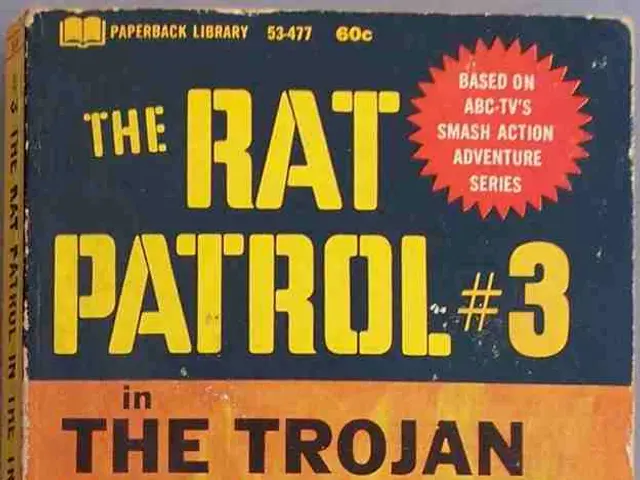President Trump Takes Over Washington's Police Department: A Closer Look
Washington law enforcement transition led by Trump, signified by the presence of National Guard soldiers
In a surprising move, President Donald Trump has assumed control over the law enforcement functions in Washington D.C., deploying National Guard troops and federal agents to the city. This decision, justified by the perceived rise in violent crime, has sparked controversy and raised legal questions.
Legal and Political Implications
Trump's takeover is based on the 1973 Home Rule Act, which allows him to temporarily control Washington's police department during emergencies for up to 30 days [1]. However, this move has raised concerns about potential violations of the Posse Comitatus Act, a law restricting the use of military forces for domestic law enforcement without congressional approval [1].
A new resolution in the U.S. House, proposed by Republican Rep. Anna Paulina Luna, aims to extend Trump's control beyond the current deadline. Yet, this extension faces opposition from Senate Democrats, who could block it with a filibuster [2].
Local Response and Criticism
The takeover has been met with resistance from local officials and federal lawmakers. Senate Minority Leader Chuck Schumer has vowed to fight against any extension of federal control [2]. The move has also been criticized for potentially disrupting local governance and public safety, with concerns about the aggressive policing practices that may result from increased federal enforcement [1][4].
Impact on Crime Rates and Public Safety
Contrary to the justification for the takeover, city and federal statistics show a significant decrease in crime rates, with violent crime in Washington reaching a 30-year low after a sharp rise in 2023 [5]. Ed Martin, Trump's original choice for U.S. attorney for the District of Columbia, acknowledged a 25% drop in violent crime rates in a press release earlier this year [6].
The deployment of National Guard members and federal agents has led to the arrest of 23 individuals overnight, with charges ranging from gun and drug crimes to homicide [7]. However, the long-term impact on crime rates and public safety remains to be seen.
The New Standoff Between Trump and Bowser
Mayor Muriel Bowser has pledged to work alongside federal officials, while insisting the police chief remains in charge [7]. Yet, she contends that all the power resides with Trump, leaving local officials with little choice but to comply [8]. The new standoff between Trump and Bowser has cast Bowser in a sympathetic light, even among her longtime critics [9].
Potential Broader Implications
The American Immigration Council suggests that the takeover could also be used as a means to change rules about how the D.C. police operate, potentially leveraging the situation for broader immigration enforcement efforts [3].
This news article is based on reporting from Alanna Durkin Richer, Jonathan J. Cooper, and Ali Swenson [10].
References:
- Trump's Emergency Takeover of Washington's Police Department
- Trump's Takeover of Washington's Police Department Faces Opposition
- Trump's Takeover of Washington's Police Department: Immigration Implications
- The Impact of Trump's Takeover on Washington's Public Safety
- Washington's Violent Crime at a 30-Year Low
- Ed Martin's Press Release on Crime Rates
- Trump Deploys 800 National Guard Members in Washington
- Bowser Contends Trump Has All the Power
- The New Standoff Between Trump and Bowser
- Contributing Reporters
- The move by President Trump to take control over Washington's police department has raised questions about potential violations of the Posse Comitatus Act, a law restricting the use of military forces for domestic law enforcement.
- The takeover has faced opposition in politics, with Senate Democrats ready to block any extension of federal control beyond the initial deadline, opposing a new resolution proposed by Republican Rep. Anna Paulina Luna.
- The impact of the increased federal enforcement on crime rates and public safety remains uncertain, with city and federal statistics showing a significant decrease in crime rates despite the takeover.
- AI-based analysis of war-and-conflicts reports might be used to predict potential consequences and outcomes of such takeovers under different political scenarios, providing insights for general news coverage and crime-and-justice discussions.
- In the larger context, concerns about potential abuse of power extend beyond domestic law enforcement, raising questions about how the military could be used in future situations, both in tariff disputes and other political conflicts.






